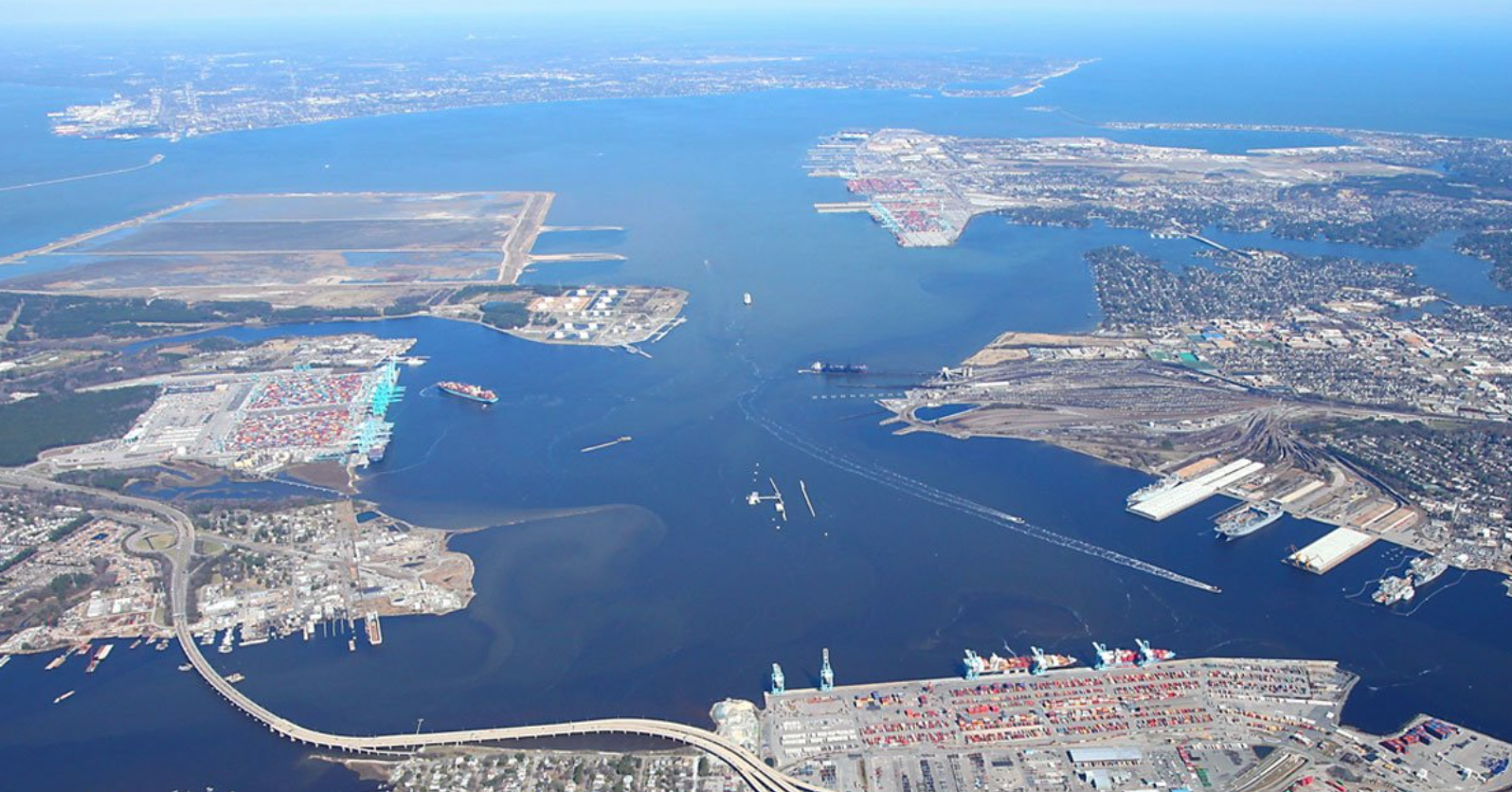Port of Virginia imports first containers of rare Covid-19 test kits, medical gear
Logistics firms launch industry efforts to address shortages of coronavirus tests, protective gear for medical workers.

Shipping containers loaded with imported Covid-19 test kits and protective gear for frontline medical personnel have started to arrive at the Port of Virginia, where logistics leaders have instituted a critical cargo initiative allowing them to process that cargo rapidly, the port said today.
The imports could help address critical shortages in the U.S. response to the coronavirus pandemic, including virus testing gear and personal protective equipment (PPE) for health workers. Health experts say the lack of sufficient stocks of both items is hindering the country’s effort to slow the spread of the virus, since epidemiology studies cannot be accurate without data from widespread testing of potential patients. Likewise, shortages of protective gear are endangering “essential workers”—including truck drivers and warehouse employees—who are required to report to work despite regional business closures and shelter-in-place orders.
In the absence of federal initiatives to balance these shortages—the Trump Administration has directed governors to buy their own medical supplies instead of collaborating with national stockpiles—some sectors of the logistics community have launched individual plans to supply PPE gear to those on the frontlines by expediting shipments on their own terms.
On Tuesday, the Nevada Trucking Association said that several casinos from the state’s gaming economy had donated surgical gloves, and other groups could soon give additional PPE items such as hand sanitizer and disinfecting wipes. “One of the things I love most about Nevada is how people and businesses have stepped to help one another respond to Covid-19,” Paul Enos, CEO of the Nevada Trucking Association, said in a release. “The Wynn, Caesar’s, and The Peppermill in Reno have been extremely generous in donating gloves to our drivers and the men and women working in the supply chain.”
And today, the International Air Transport Association (IATA) warned that air cargo bottlenecks of such medical gear shipments could put lives at risk. “Air cargo is a vital partner in the global fight against COVID-19. But we are still seeing examples of cargo flights filled with life-saving medical supplies and equipment grounded due to cumbersome and bureaucratic processes to secure slots and operating permits. These delays are endangering lives. All governments need to step up to keep global supply chains open,” Alexandre de Juniac, IATA’s director general and CEO, said in a release.
The shipments of medical gear now flowing into the Port of Virginia were handled through the port’s “Covid-19 Critical Cargo Initiative,” which expedites the processing of any cargo needed in the coronavirus fight, and allocates the equipment and personnel assets needed to get the container moving to its destination as fast as possible, port leaders said.
In this case, the vessel “Cosco Philippines” arrived at Virginia International Gateway early Monday morning, and the container with the test kits was offloaded just before 9 a.m. Barely two hours later, a truck carrying that container left the terminal and was bound for a pharmaceutical company in Indianapolis.
By now, that truck has delivered its load of PPE for the medical industry—such as face shields, gowns, and gloves—test kits, and virus-critical shipments like hand sanitizer and raw materials going into PPE production. “We moved our first import load of test kits on Monday and our operations team worked closely with the ocean carrier and the cargo owner to make sure we moved that container first,” John F. Reinhart, CEO and executive director of the Virginia Port Authority, said in a release. “Three more containers are set to arrive later this week and we are working with the ocean carriers to identify additional priority cargo.”
At another East Coast port, the Georgia Ports Authority has implemented an "Isolate and Operate" strategy to keep its facility open despite the threat of workers falling victim to the pandemic. For example, port leaders say they have minimized the risk of possible exposure by spreading workers out across the expanse of the 1,300-acre Garden City Terminal in Savannah. In other changes to keep maritime cargo moving despite Covid-19 threats, the port has assigned operators to specific cranes, closed all break rooms and group meeting areas, and provided disinfectants to equipment operators so they can wipe down their controls at the beginning and end of each shift.
In conjunction with those policies, the International Longshoremen's Association at Georgia Ports has started monitoring the temperature of union members as they report to work, sending home any workers with a temperature or other symptoms of illness.
The safety of our supply chain has never been more important. That’s why we’re taking all the steps we can to ensure a safe and healthy environment for our colleagues and labor and motor carrier partners. You can read more by clicking the link. https://t.co/p47mOXLxG0 pic.twitter.com/PnnIY133nt
— The Port of Virginia (@PortofVirginia) March 23, 2020
Related Articles

Copyright ©2024. All Rights ReservedDesign, CMS, Hosting & Web Development :: ePublishing